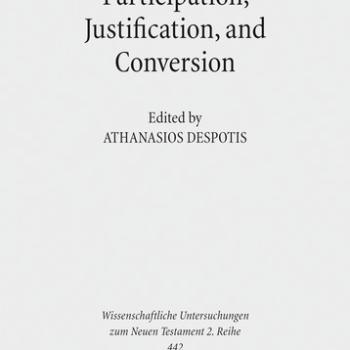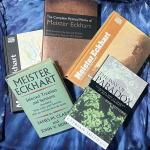
Why Are Some Books More Enjoyable Than Others?
A healthy practice of reading is more than simply loving to read. Why are some books more enjoyable than others?
Reading books teaches us about the magic and power of words.
Developing contemplative practices strengthens our love for reading and reflection. It is ironic how appreciating contemplation and stillness feeds the ways we value words. Our practice of reading and reflection combines the words and the space between them.
Some books I enjoy are part of my practice of reading, but I try to savor all of them. There can be an intense sadness in coming to the end of a good book, like leaving after visiting a close friend.
This practice is not exactly the same as sacred reading or lectio divina. We are not about trying to keep up with all the new books about spiritual life constantly being published.
Some of us set goals for what we hope to read each year or each month. We might commit ourselves to read scriptural books each day.
There are people who see me for spiritual direction who choose books for us to read and talk about together. It can be a particularly enjoyable aspect of our spiritual practice.
One of my practices focuses on online conversation groups in which we read spiritual books together. People participate in the groups over four academic years, and the conversations cover all four years. Each year is organized around a guidebook called a Reading & Reflection Guide.
My practice also includes reading books to review them. I write book reviews for Spiritual Directors International, and sometimes include book reviews in this blog.
Reading As an Organized Practice
I also read a few series of detective mysteries. There is joy in anticipating the next book to be published and the comfort of spending time with characters I already know.
My spiritual practice is not limited to sitting and running my eyes over the words on the pages. While I often rely on the public library for mystery series, choosing and acquiring books is part of my practice.
I took time last summer for some bookshelf maintenance. One of my goals for the year was to purchase a full set of books by one author, and I needed to clear some space. It had been some time since I had surveyed my bookcase with an eye to sorting and shifting.
There were some challenges, but I felt better when I had finished clearing space. I have begun reading my new collection, which will probably take me into next year. I already have a couple of candidates for my next acquisition project.
A spiritual practice of reading is not a race; neither a sprint nor a marathon. It is not my way of training myself to read faster or more efficiently. I am not in a hurry. My regular reading will be interrupted as new mysteries are published.
Reading as a spiritual practice is a contemplative exercise. We are not pushing ourselves to become better readers. It is more about listening and being open to what a text has to tell us, whether it is scripture or a mystery novel.
We listen to hear what an author is trying to tell us and what it sparks within us. Reading is how we develop relationships with people who may have lived hundreds, or thousands, of years ago.
I Enjoy Some Books More Than Others
Some of the people who have taught and influenced me the most were because I read what they had written. Women and men who died centuries before I was born have helped me though difficult situations. The mentors who inspired me and shaped my thinking reached me through their writing.
We have become accustomed to making friends we have never met in person through social media. Some of us have developed supportive, encouraging online communities of people who live far away from us.
My socially distant friends are not only far away geographically, but also chronologically.
People like Benedict and Thomas Merton, Julian of Norwich and Kathleen Norris are friends I have never met. Even when their words have been translated and retranslated, they speak to me.
When we read to build relationships we do not necessarily need to have all the background information. We do not need to argue about exactly what they were trying to tell us. What they wrote sparks new insight in us today. When we struggle with situations they could not foresee, their words still comfort us.
Reading the books on our shelves again and again, our relationship to the people who wrote them grows stronger.
We read their words and listen to what they have to tell us. Our conversation continues.
Reading and Reflecting Together
Reading is something we enjoy doing. We want to find more time to read and more ways it can become a spiritual practice for us.
There are many books to read by many people about so many subjects.
One significant step for me is spending time with other people who encourage me. Please contact me if you would like to build a spiritual practice of reading.
A friend of mine, another spiritual director, and I are beginning an online community which will meet each month.
Each month we will read and reflect on one book. Toward the end of the month we will have a conversation to share what we have gained from our reading and reflection of that book.
Our Zoom community will be a helpful way for people to practice reading and reflecting together.
Let me know if you are interested. Bring your questions.
It is not about trying to force anyone into anything or convince anyone. We come together online, settle into our conversation, and share our questions and insights about what we have read. It is a way for us to experience being together online.
Why are some books more enjoyable than others?
Where will our practice of reading and reflecting help us go this year?
[Image by Kamal H.]
Greg Richardson is a spiritual director in Southern California. He is a recovering assistant district attorney and associate university professor and is a lay Oblate with New Camaldoli Hermitage near Big Sur, California. Greg’s website is http://StrategicMonk.com and his email address is StrategicMonk@gmail.com.

















